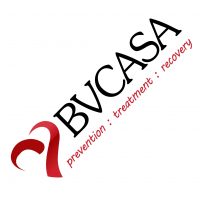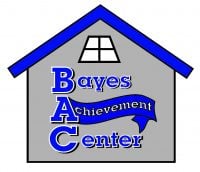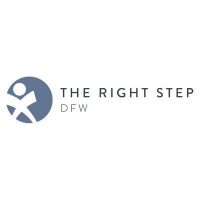More Than Rehab
Drug Rehab Center in Bryan, Texas
More Than Rehab is a Joint Commission and LegitScript accredited treatment center in Bryan, Texas providing evidence-based approaches and personalized care for individuals battling substance use, opioid addiction, and mental health disorders, with comprehensive support including sober living and aftercare.
About
More Than Rehab is a reputable drug treatment center located in Bryan, Texas. With their accreditation from the Joint Commission on Accreditation of Healthcare Organizations (JCAHO) and certification from LegitScript, More Than Rehab ensures that they meet rigorous standards of quality and safety in providing substance abuse and addiction treatment. This facility is dedicated to helping individuals suffering from substance abuse, opioid addiction, dual diagnosis, and mental health issues. They offer a wide range of treatment options, including detoxification, inpatient care, partial-hospitalization, outpatient programs, aftercare support, dual-diagnosis treatment, intensive outpatient programs, and sober-living or half-way levels of care.
At More Than Rehab, individuals struggling with addiction and substance abuse can find comprehensive services tailored to their unique needs. They provide detoxification services to help individuals safely and comfortably rid their bodies of harmful substances. In addition to inpatient care, which offers a structured and supportive environment for recovery, More Than Rehab also provides partial-hospitalization and outpatient programs to accommodate varying levels of support needed. This facility understands the importance of addressing mental health issues alongside addiction, offering dual-diagnosis treatment. Moreover, they offer intensive outpatient programs and aftercare support to help individuals maintain their sobriety and prevent relapse. With their commitment to providing a continuum of care, More Than Rehab also offers sober-living or half-way levels of care to support individuals as they transition back into daily life.
Genders
Ages
Modality
Additional
Accreditations

LegitScript

JCAHO
Conditions and Issues Treated
Recovering from substance abuse is an essential part of a healthy life for many people. It’s a long and challenging process, but it can be worth it in the end if you manage to get through all parts. Detoxifying your body, rehabilitation after that time passes or when needed (depending on what type), and then recovery while also receiving therapy support throughout this entire process.
A standard route to starting recovering from substance abuse and addiction is through a detoxification center. There you can completely heal your body and mind and continue on the path of recovery without feeling any of the lingering effects of substances.
Within the past decade, opioid addiction has become a nationwide epidemic. The United States hosts one of the world’s highest rates of opioid use or abuse and has one of the highest rates of opioid-related deaths. In the United States, opioid drugs are classified as Schedule II-IV controlled substances due to their highly addictive properties and potential for abuse. These include morphine, opium, heroin, oxycodone, hydrocodone, methadone, and fentanyl. Physicians usually prescribe opioids to help control pain.
Over time, opioid users develop a tolerance for the drugs, which makes it difficult, if not impossible, to function without them. In turn, opioid users often resort to illicit means of obtaining the drugs. These means can include drug dealers, friends, and family members who do not have legitimate prescriptions for the drugs. Opioid addiction can quickly lead to heroin use, especially those seeking more intense highs than prescription opioids offer. Due to the high risk of overdose, heroin users are at a much higher risk for illness and death.
A person who struggles with addiction and a mental health condition suffers from a dual diagnosis. This means that they have two issues that must be treated. The specific mental health issues that the patient at More Than Rehab might have include but are not limited to:
- Depression
- Bipolar Disorder
- Anxiety
- PTSD (Post Traumatic Stress Disorder)
The specific addiction issues that the patient might have include but are not limited to:
- Alcoholism
- Drug Addiction (i.e., Cocaine, Meth, and other stimulants, Marijuana, and Ecstasy)
The combination of the two illnesses can be tough to treat. Taking care of one or the other is tough, and taking care of both cannot be done alone. A patient who receives dual diagnosis treatment will be given the best chance at becoming sober.
Levels of Care Offered
This center offers a variety of custom treatment tailored to individual recovery. Currently available are Aftercare Support, Detox, Dual-Diagnosis, Inpatient, Intensive Outpatient, Outpatient, Partial-Hospitalization, Sober-Living / Half-Way, with additional therapies available as listed below.
Detoxification is a critical first step in treatment for drug addiction. Drug detoxification helps the individual withdraw from the drug by providing a controlled environment where symptoms can be managed through medication and close observation. Detoxification is an inflection point where the individual can get on a recovery track, but it’s also one of the most dangerous points in the recovery process.
In addition to going through physical withdrawal from certain drugs, a detox program also provides the individual with drug testing to monitor their progress. This way, if the individual is not ready for sobriety (such as if they relapse), the treatment professionals can catch it early on and use that opportunity to help re-orient the individual towards recovery.
Inpatient treatment centers offer a safe, secure, and often medically supervised environment for drug or alcohol-addicted individuals. Many of these facilities are equipped to provide detoxification, treatment for co-occurring mental health disorders, and aftercare programs.
The patient typically spends 28 to 30 days at the facility and will receive extensive drug counseling. They will also learn how to live without drugs and how to make the right decisions in life.
Intensive Outpatient Programs are similar to partial hospitalization, but they don’t require the patient to go home each night.
This means that while they have to attend meetings and receive other types of help at the facility, addicts are allowed to keep their jobs or continue with school without having to miss their classes or work opportunities. This is a great option for those who can’t take time away from their jobs or schedules to attend a treatment program.
During this type of program, the addict will be required to meet with counselors and other types of professionals throughout the day. This will help them stay on track and prevent them from relapsing after they leave the facility.
An outpatient treatment program is set up to help with alcohol or drug addiction or a co-occurring disorder. The treatment must attend the treatment facility for their therapy and other programs but return home each night. The frequency of mandatory attendance decreases after much of the treatment program is complete. The treatment programs are monitored by the treatment facility and case managers who work for a judge or judge’s office. A treatment program may be performed out of a treatment facility, treatment clinic, or treatment center.
The benefits of outpatient treatment programs are many. One of the most beneficial treatment programs is that it allows treatment for clients who cannot afford or may not be able to attend treatment at a treatment facility, treatment center, or treatment clinic full-time. Another benefit of treatment programs is that they reduce crime rates because treatment allows people to treat their addiction.
This type of addiction treatment is available at More Than Rehab for people who need more time and attention than an outpatient program can provide. This type of program is beneficial for people who have low motivation due to addiction, or have a lack of support at home which prohibits them from being able to attend a traditional addiction recovery program.
PHP is beneficial to:
- Individuals who have very low motivation to recover from addiction as a result of the severe consequences they are facing as a result of their drug or alcohol use.
- People with a mental health diagnosis combined with addiction.
- People who need to be closely monitored due to the fact that they are not able to function well enough on their own.
- People who do not have strong social support or other treatment options available to them at home such as family or individual therapy.
Sober living homes are halfway houses where people stay for a certain amount of time with the opportunity to stabilize themselves when they’re in recovery. Residents must follow the rules like no drinking and using drugs, paying rent/bills, etc. There is no minimum or maximum period of stay; as long you abide by these simple guidelines, then it’s an excellent chance to move forward into sobriety!
For many, this is a fresh start, a time to reset the calendar. Some have lost everything due to addiction, so being in sober living allows them to try again or begin for the first time by establishing new routines and healthy habits that will result in long-term sobriety. It’s also common for people to move from one sober living home to another. Each move gets them closer and closer to their final destination of a drug & alcohol-free life.
Recovering drug addicts need aftercare support when they leave treatment. The support can include guidance through 12-step programs, outpatient rehabilitation programs, and support groups. Aftercare supports the individual in their desire to maintain sobriety by reducing relapse risk with positive choices.
The success of drug treatment does not end when the addict leaves the rehabilitation center. There is no such thing as a “one and done” type of rehabilitation process. Recovery is a lifelong journey that begins with treatment and continues by the addict committing to outside support groups or drug rehab programs.
When choosing a program, it is crucial to choose one that will provide long-term aftercare support. This ensures that you have the tools you need to sustain your recovery.
Therapies & Programs
The therapies typically involve all family members, potentially including siblings, children, and parents who play a role in their daily lives. These sessions can be essential because they address past issues that may have affected an addict or alcoholic’s recovery process. They provide support during this time when it is needed most!
A family therapy session, often called a family meeting or intervention, is a necessary process that helps loved ones of addicts see their situation in a new light. It’s also one of the most challenging things families will ever have to do when they’re facing a loved one battling addiction or alcoholism.
Group therapy sessions provide recovering addicts with a chance to cope with everyday situations that many face. Group therapy sessions are held in rehab facilities, clinics, churches or community centers that offer drug addiction treatment.
People who attend these groups are encouraged to voice their feelings and support other addicts in recovery. This helps group members strengthen their own recovery program while cheering on others who are struggling with sobriety.
Trauma therapy allows them to work through past trauma to have peace of mind and begin down the road of sobriety. The therapist will work with the individual to help them understand their past and present relationships. Patients may often believe that something is inherently wrong with them or they are unworthy of love. The therapist aims to correct these negative feelings and behaviors by helping the person realize that their actions do not reflect who they truly are.
Dialectical behavior therapy, or DBT, is one form of cognitive behavioral treatment. This type of therapy typically involves both individual and group sessions with a therapist on a regular basis.
It uses concepts like mindfulness training to help addicts learn how to identify their thoughts, feelings, behaviors and the experiences that trigger them so they can avoid relapse. DBT also teaches addicts how to regulate their emotions, which can make it easier for them to avoid or overcome negative thoughts and cravings.
Cognitive Behavioral Therapy (CBT) is a highly effective treatment option based on the idea that how we feel, think and act all interact together. Our thoughts determine our feelings and behaviors; our feelings affect our thoughts, and our behaviors change our thoughts and feelings. CBT helps people explore their thoughts for problems (or false beliefs) that influence their mood and actions. By examining their thoughts and beliefs, people can recognize distorted or irrational and modify them to more realistic, positive ones. CBT is very goal-oriented, which means that the therapist and patient work together on a specific problem while learning to become more adept at solving future problems.
CBT works well with a broad range of people, including those with depression, anxiety disorders, eating disorders, and problems with anger. In addition to helping a client focus on thoughts that can be changed, CBT also allows them to take an active role in their treatment. This is called a collaborative approach because both patient and therapist work together to produce the best possible results.
CBT is based on cognitive learning theory, which says that our behavior is a learned response to our environment. Cognitive refers to thoughts and beliefs, while behavioral relates to actions or deeds. CBT helps people learn ways of behaving to improve their quality of life by focusing on specific problems or goals they want to achieve. Sometimes, CBT is used alone; other times, it is combined with medications or brief counseling techniques such as solution-focused and motivational interviewing to achieve optimal results for the patient.
Eye Movement Desensitization and Reprocessing (EMDR) therapy is different from the traditional treatment that helps patients recover from substance abuse. This therapy, offered by More Than Rehab, helps patients reduce the impact of traumatic memories on emotions. It does this by having them follow a bar of light or watch their therapist’s finger move back and forth, which mimics the eye movements of REM sleep. This reduces the negative feelings associated with such memories and promotes calmness and relaxation.
EMDR therapy is combined with behavioral therapies to address the root cause of substance abuse. This reduces the chances of relapse at a later stage.
Life skills training is beneficial for addicts in recovery because it helps them learn how to take care of themselves and improve their quality of life, which can promote feelings of purpose and motivation.
This works by teaching individuals life-enhancing skills that support positive living, including:
- Healthy lifestyle habits
- Skills to effectively manage stress
- Effective communication skills to help them get their needs met without turning to drugs or alcohol
- Money management and budgeting skills so they can continue to take care of themselves after treatment ends.
Payment Options Accepted
For specific insurance or payment methods please contact us.
Additional Details
Specifics, location, and helpful extra information.
Bryan, Texas 77802 Phone Number(888) 249-2191 Meta DetailsUpdated November 25, 2023
Staff Verified
Is More Than Rehab a LegitScript Verified Treatment Facility?
According to our most recent records, we have found this center to be LegitScript verified.
Patient Reviews
There are no reviews yet. Be the first one to write one.
Bryan, Texas Addiction Information
Texas is one of the primary hubs for drug smuggling into the country. The border between Texas and Mexico is more than 1,000 miles long. More than 10 million residents use alcohol every year and more than 25% of those are minors. Alcohol and drug use has become so common in Texas that almost 15% of all deaths can be attributed to these substances.
Drugs and alcohol abuse is a big problem in Bryan, Texas. Drug abuse and addiction cost Bryan, TX $105.8 million in 2016. There are many alcohol and drug rehabs in Bryan, Texas, but not enough resources to help all people who need them. The most common type of treatment is medication, but several different therapy options are available. Treatment in Bryan, Texas can be very expensive.
Treatment in Nearby Cities
- Mesquite, TX (147.5 mi.)
- Manvel, TX (99.6 mi.)
- Center Point, TX (170.7 mi.)
- North Richland Hills, TX (160.7 mi.)
- Ennis, TX (117.7 mi.)
Centers near More Than Rehab
The facility name, logo and brand are the property and registered trademarks of More Than Rehab, and are being used for identification and informational purposes only. Use of these names, logos and brands shall not imply endorsement. RehabNow.org is not affiliated with or sponsored by More Than Rehab.










